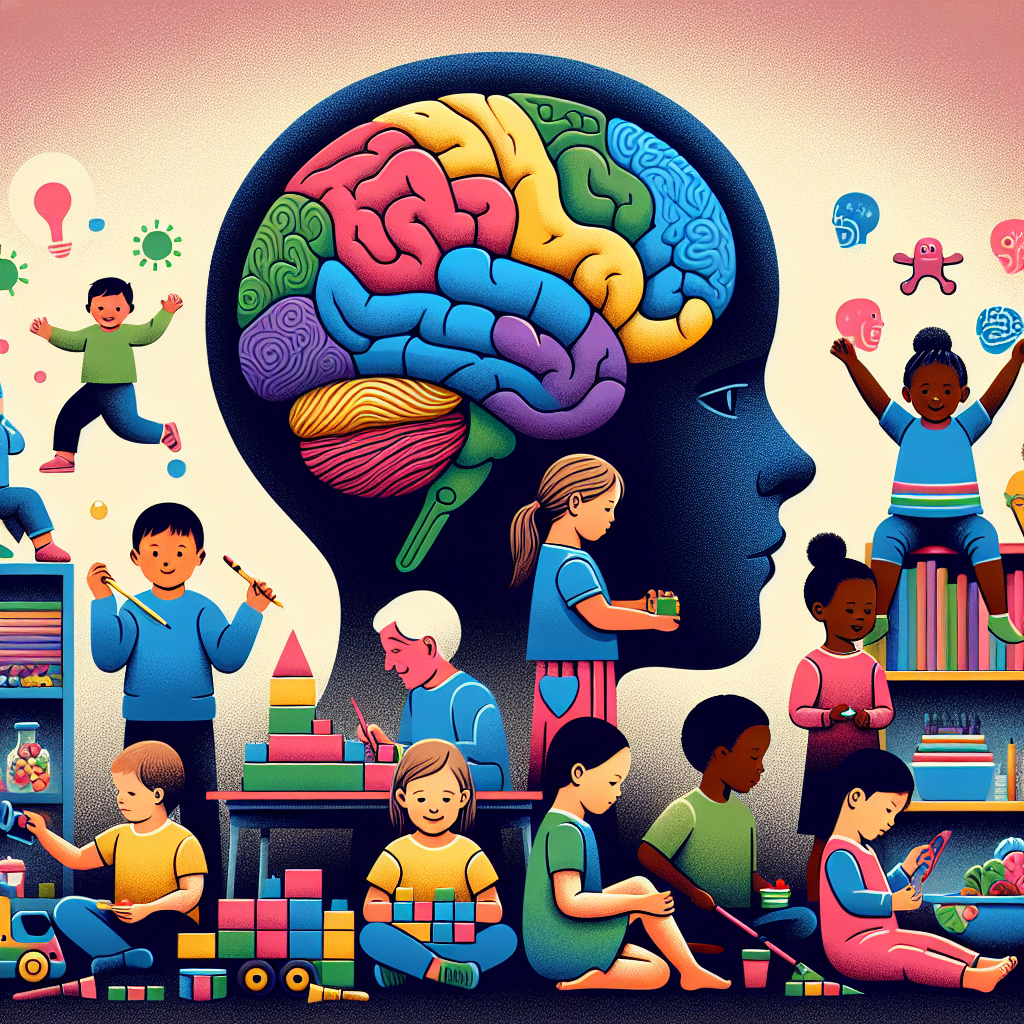Early childhood is a critical period in a person’s life that lays the foundation for their future development and well-being. During this time, the brain undergoes rapid growth and development, making it particularly vulnerable to external influences. Research has shown that early childhood experiences can have a profound impact on brain development and behavior, shaping a child’s cognitive, emotional, and social abilities.
The brain is a complex organ that is constantly changing and adapting in response to the environment. During early childhood, the brain is particularly malleable, with billions of neural connections being formed and refined through a process known as synaptic pruning. This process allows the brain to adapt to new experiences and learn new skills. However, it also means that the brain is highly sensitive to environmental influences, both positive and negative.
Positive early childhood experiences, such as nurturing care, responsive parenting, and enriching environments, can promote healthy brain development. These experiences help to strengthen neural connections and support the growth of key brain regions involved in cognition, emotion regulation, and social interaction. For example, interactions with caregivers that are warm and responsive can promote the development of secure attachments, which are essential for healthy emotional and social development.
Conversely, negative early childhood experiences, such as exposure to trauma, neglect, or toxic stress, can have detrimental effects on brain development. Chronic stress in childhood can disrupt the normal functioning of the brain, leading to changes in the stress response system and alterations in brain structure and function. These changes can increase the risk of mental health problems, such as anxiety, depression, and post-traumatic stress disorder, as well as impairments in cognitive functioning and social skills.
The impact of early childhood experiences on brain development extends beyond childhood and can have long-lasting effects into adulthood. Research has shown that adverse childhood experiences are associated with a higher risk of a range of negative outcomes in later life, including substance abuse, chronic health conditions, and poor academic achievement. In contrast, positive early childhood experiences have been linked to better health, higher levels of educational attainment, and greater social and emotional well-being in adulthood.
Understanding the impact of early childhood experiences on brain development is crucial for promoting healthy development and preventing negative outcomes. By creating supportive environments for young children and providing interventions to address the effects of early adversity, we can help to mitigate the impact of adverse experiences and support positive brain development.
FAQs:
Q: Can the effects of early childhood experiences be reversed?
A: While early childhood experiences can have a lasting impact on brain development, research has shown that the brain remains malleable throughout life. With the right interventions and support, it is possible to promote positive changes in brain function and behavior, even in adulthood.
Q: How can parents support healthy brain development in their children?
A: Parents can support healthy brain development in their children by providing loving and nurturing care, engaging in responsive interactions, and creating a safe and stimulating environment. Reading to young children, engaging in play activities, and fostering positive social connections are also important for promoting healthy brain development.
Q: What role do early childhood education programs play in promoting healthy brain development?
A: Early childhood education programs can play a crucial role in promoting healthy brain development by providing enriching and stimulating environments that support learning and social development. High-quality early education programs have been shown to have long-lasting benefits for children’s cognitive and social development.
Q: How can policymakers support healthy brain development in young children?
A: Policymakers can support healthy brain development in young children by investing in programs and services that promote early childhood development, such as quality childcare, parent support programs, and early intervention services for at-risk children. By prioritizing early childhood development, policymakers can help to ensure that all children have the opportunity to reach their full potential.




Leave A Comment